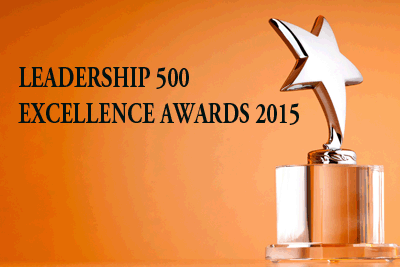Development Mindedness
A critical leadership competency
The Market Value of Leadership
The intersection of HR and investors
Leadership Trust
The three dimensions
What is Your Leadership Story?
5 questions to become the leader you want to be


Development Mindedness
A critical leadership competency
The Market Value of Leadership
The intersection of HR and investors
Leadership Trust
The three dimensions
What is Your Leadership Story?
5 questions to become the leader you want to be
I suspect the title of this article piqued your curiosity about what insights might be revealed. But then, no doubt, the curiosity gave way to another question. Somewhere in the back of your mind you've wondered: "Which half is he talking about, the 'strong' half or the 'weak' half?" And then, after a moment of reflection, another question arose, "I wonder how I compare? Which half am I in?"
Every day leaders devise ways to increase employee accountability, yet their efforts backfire. People find ways to skew the numbers, take shortcuts, skip protocols, and falsify information. It’s not only the worker-bees who struggle with accountability. Leaders often struggle with holding themselves and others accountable, and do not realize how their struggles affect the culture.
Values-based leadership (VBL) ambassador and named one of the 100 Top Thought Leaders in Trustworthy Business 2014 by Trust Across America, Mark Fernandes, Chief Leadership Officer of Luck Companies, has a true passion for inspiring people to reach their highest potential. In this conversation with Mark, we explore the powerful practice of VBL and how it helps create sustainable organizations by igniting human potential.
It is a little known fact that the best wine grapes grow in the worst, most inhospitable soil conditions. How is that possible? Stress. The grapes are under pressure to survive. They are forced to seek nutrients deep in the soil for sustenance and to direct what little water there is for the grapes as opposed to the plants. Interestingly, surviving through this crucible of sorts helps to shape them into best of breed varietals.
Can you help someone become not just a better leader, but a great one? The answer is: It depends on your mindset. If you judge leadership by ranking one leader against another based on innate individual characteristics, only some can rise to greatness. If you judge leadership solely on the basis of absolute results, it’s possible for everyone to become a great leader, if they all achieve great results.
Dr. Bill Dorfman is a leading celebrity dentist and an extraordinary entrepreneur and business leader. He founded a company that became the leading manufacturer of cosmetic dentistry products, is a NYT Bestselling author, Guinness Book World Record holder, and philanthropist. In addition to his cosmetic dentistry practice in LA, he founded Discus Dental and helped launch cosmetic dentistry products like ZOOM!, Day White, Nite White and BreathRx. His enthusiasm, determination and vision have made cosmetic dentistry mainstream.
Research conducted by Florida State Professor Anders Ericsson suggests that no matter your discipline, it takes a consistent time of around 10,000 hours or 20 hours a week for 10 years to achieve mastery. That 20 hours means you are actually engaged in your craft, not just thinking about it. From music and medicine to lawyers, leadership, and sports, the career choice did not matter. It still takes at least 10,000 hours to become competent. He confirmed success is not an accident—it takes focused effort.
In the past, globalization tended to mean Western companies exporting their people, products and ways of doing things to other parts of the world. However, the new environment that international companies are required to operate in can more accurately be described as multipolar. These days, if you are an American firm pitching for business in Africa, you may well also have credible local competitors, as well as companies from China and India vying for the business. In order to succeed as a leader in a multipolar world, certain assumptions need to be shed and new skills developed – not only by Western leaders but also by those from countries whose companies are stepping onto the world stage for perhaps the first time.
I was a 27-year-old engineering technologist in an aluminum smelting plant who had just been made a team leader. Perfect! The world was unfolding exactly as it should. I had worked my tail off on some key projects to earn this promotion. I deserved it. I clearly had enormous potential and extraordinary political savvy…or at least I thought this to be true.
Even Joe the Pipefitter must look askance at some of the moves made in corporate America when faced with a string of bad news.